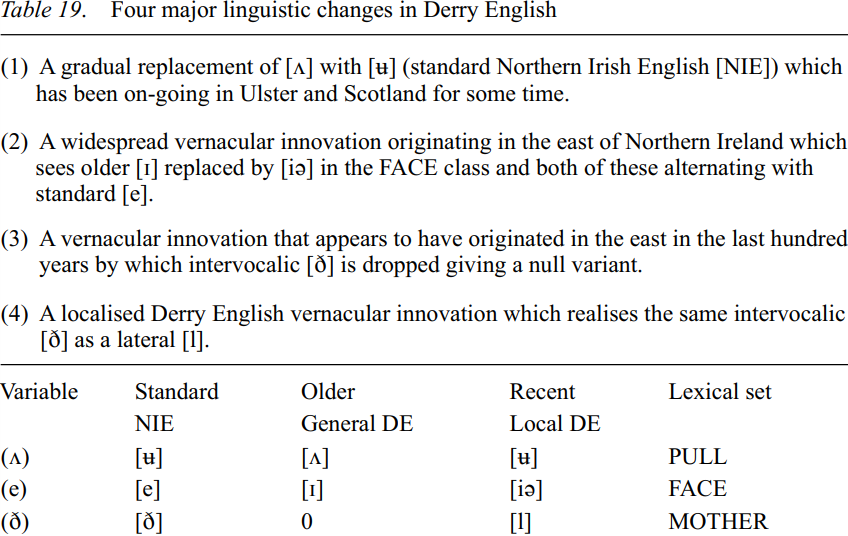

Grammar


Tenses


Present

Present Simple

Present Continuous

Present Perfect

Present Perfect Continuous


Past

Past Simple

Past Continuous

Past Perfect

Past Perfect Continuous


Future

Future Simple

Future Continuous

Future Perfect

Future Perfect Continuous


Parts Of Speech


Nouns

Countable and uncountable nouns

Verbal nouns

Singular and Plural nouns

Proper nouns

Nouns gender

Nouns definition

Concrete nouns

Abstract nouns

Common nouns

Collective nouns

Definition Of Nouns


Verbs

Stative and dynamic verbs

Finite and nonfinite verbs

To be verbs

Transitive and intransitive verbs

Auxiliary verbs

Modal verbs

Regular and irregular verbs

Action verbs


Adverbs

Relative adverbs

Interrogative adverbs

Adverbs of time

Adverbs of place

Adverbs of reason

Adverbs of quantity

Adverbs of manner

Adverbs of frequency

Adverbs of affirmation


Adjectives

Quantitative adjective

Proper adjective

Possessive adjective

Numeral adjective

Interrogative adjective

Distributive adjective

Descriptive adjective

Demonstrative adjective


Pronouns

Subject pronoun

Relative pronoun

Reflexive pronoun

Reciprocal pronoun

Possessive pronoun

Personal pronoun

Interrogative pronoun

Indefinite pronoun

Emphatic pronoun

Distributive pronoun

Demonstrative pronoun


Pre Position


Preposition by function

Time preposition

Reason preposition

Possession preposition

Place preposition

Phrases preposition

Origin preposition

Measure preposition

Direction preposition

Contrast preposition

Agent preposition


Preposition by construction

Simple preposition

Phrase preposition

Double preposition

Compound preposition


Conjunctions

Subordinating conjunction

Correlative conjunction

Coordinating conjunction

Conjunctive adverbs


Interjections

Express calling interjection


Grammar Rules

Passive and Active

Preference

Requests and offers

wishes

Be used to

Some and any

Could have done

Describing people

Giving advices

Possession

Comparative and superlative

Giving Reason

Making Suggestions

Apologizing

Forming questions

Since and for

Directions

Obligation

Adverbials

invitation

Articles

Imaginary condition

Zero conditional

First conditional

Second conditional

Third conditional

Reported speech


Linguistics

Phonetics

Phonology

Linguistics fields

Syntax

Morphology

Semantics

pragmatics

History

Writing

Grammar

Phonetics and Phonology

Semiotics


Reading Comprehension

Elementary

Intermediate

Advanced


Teaching Methods

Teaching Strategies

Assessment
English in Derry
المؤلف:
Raymond Hickey
المصدر:
A Handbook Of Varieties Of English Phonology
الجزء والصفحة:
89-4
2024-02-20
1288
English in Derry
The city of Derry has a population of over 95,000 (1991 census) and is ethnically over 70% Catholic as opposed to Belfast which has a majority Protestant population. The designation Londonderry is a variant preferred by both Ulster Protestants and British commentators and goes back to a renaming of the city when London companies were commissioned with the task of transporting English settlers there at the beginning of the 17th century. The city’s name is an Anglicization of Irish doire ‘oak-grove’, a common name, or element of name, in the north and south of the country.
There is a large degree of segregation in terms of residence for the two communities: east of the River Foyle, which divides the city, are found Protestants and west of the river is almost exclusively Catholic. The segregation increased greatly in the last 30 years because of the sectarian violence.
The only research on the English of Derry city is that of M-Cafferty, apart from one study of intonation in Derry. The city has a special status within Northern Ireland as it is on the one hand the second largest and on the other the only major city with a Catholic majority. It is understandable that it would receive innovations which arise in Belfast but also that the Catholic majority in the city might well show an inherent resistance to these. A number of changes are recorded for Derry which are listed in the following.

McCafferty (2001) maintains that there is a tendency for the SQUARE and NURSE lexical sets to merge, a feature spreading from the east of Northern Ireland and typical of the Protestant middle class. For this group a lack of quantity distinction with the NORTH and FORCE lexical set is also found. The shift of older [I] to  in the FACE class is taken to be characteristic of younger Protestants. Protestant changes are in general incoming innovations which are spreading from eastern Northern Ireland, i.e. from the Belfast conurbation. In this case the changes for the Protestants in Derry have arisen through a process of supraregionalization of Belfast innovations. The only leading change among the Catholics in Derry is the shift of intervocalic [ð] to a lateral [l]. The Protestants in Derry have no vernacular innovations of their own.
in the FACE class is taken to be characteristic of younger Protestants. Protestant changes are in general incoming innovations which are spreading from eastern Northern Ireland, i.e. from the Belfast conurbation. In this case the changes for the Protestants in Derry have arisen through a process of supraregionalization of Belfast innovations. The only leading change among the Catholics in Derry is the shift of intervocalic [ð] to a lateral [l]. The Protestants in Derry have no vernacular innovations of their own.

 الاكثر قراءة في Phonology
الاكثر قراءة في Phonology
 اخر الاخبار
اخر الاخبار
اخبار العتبة العباسية المقدسة

الآخبار الصحية















 "المهمة".. إصدار قصصي يوثّق القصص الفائزة في مسابقة فتوى الدفاع المقدسة للقصة القصيرة
"المهمة".. إصدار قصصي يوثّق القصص الفائزة في مسابقة فتوى الدفاع المقدسة للقصة القصيرة (نوافذ).. إصدار أدبي يوثق القصص الفائزة في مسابقة الإمام العسكري (عليه السلام)
(نوافذ).. إصدار أدبي يوثق القصص الفائزة في مسابقة الإمام العسكري (عليه السلام) قسم الشؤون الفكرية يصدر مجموعة قصصية بعنوان (قلوب بلا مأوى)
قسم الشؤون الفكرية يصدر مجموعة قصصية بعنوان (قلوب بلا مأوى)


















